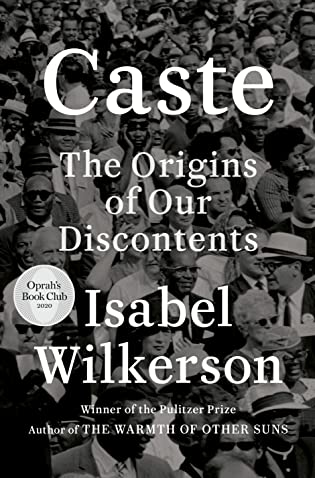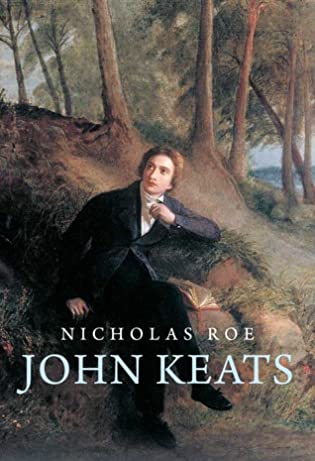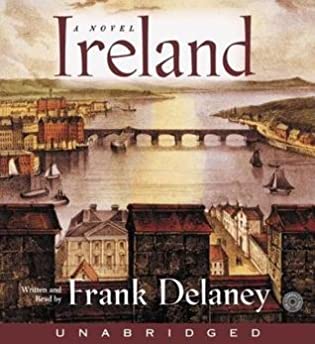I fell a little behind in reviewing books. It seems like January and February are always the busiest months at my school. I finished three books in February and early March, some of which I counted for reading challenges.
 Caste: The Origins of Our Discontents by Isabel Wilkerson
Caste: The Origins of Our Discontents by Isabel Wilkerson Published by Random House on August 4, 2020
Pages: 496
Source: Audible
Buy on Amazon, Buy on Bookshop
This post contains affiliate links you can use to purchase the book. If you buy the book using that link, I will receive a small commission from the sale.
Goodreads
The Pulitzer Prize–winning, bestselling author of The Warmth of Other Suns examines the unspoken caste system that has shaped America and shows how our lives today are still defined by a hierarchy of human divisions.
“As we go about our daily lives, caste is the wordless usher in a darkened theater, flashlight cast down in the aisles, guiding us to our assigned seats for a performance. The hierarchy of caste is not about feelings or morality. It is about power—which groups have it and which do not.”
In this brilliant book, Isabel Wilkerson gives us a masterful portrait of an unseen phenomenon in America as she explores, through an immersive, deeply researched narrative and stories about real people, how America today and throughout its history has been shaped by a hidden caste system, a rigid hierarchy of human rankings.
Beyond race, class, or other factors, there is a powerful caste system that influences people’s lives and behavior and the nation’s fate. Linking the caste systems of America, India, and Nazi Germany, Wilkerson explores eight pillars that underlie caste systems across civilizations, including divine will, bloodlines, stigma, and more. Using riveting stories about people—including Martin Luther King, Jr., baseball’s Satchel Paige, a single father and his toddler son, Wilkerson herself, and many others—she shows the ways that the insidious undertow of caste is experienced every day. She documents how the Nazis studied the racial systems in America to plan their out-cast of the Jews; she discusses why the cruel logic of caste requires that there be a bottom rung for those in the middle to measure themselves against; she writes about the surprising health costs of caste, in depression and life expectancy, and the effects of this hierarchy on our culture and politics. Finally, she points forward to ways America can move beyond the artificial and destructive separations of human divisions, toward hope in our common humanity.
While Wilkerson’s analogy between caste and race has been criticized, I found this book very interesting and illuminating. I agree with some of Charisse Burden-Stelly’s arguments in the article I linked. I don’t know enough to argue either for or against thinking of the U.S. as a race-based caste system, but it was interesting to see the ways in which the Indian caste system, the Nazi regime, and America’s racism were similar in construction. I will also add that it’s important to be cautious about comparing any system to Nazi Germany. The Nazis killed 11 million people. I would never argue that American racism or India’s caste system haven’t been deadly. Of course they have. As Sunil Khilnani argues in an article for The New Yorker, “Applying a single abstraction to multiple realities inevitably creates friction—sometimes productive, sometimes not. In the book’s comparison of the Third Reich to India and America, for example, a rather jarring distinction is set aside: the final objective of Nazi ideology was to eliminate Jewish people, not just to subordinate them.” In spite of these valid critiques, I found the book interesting, and I recommend it to people who want to understand racism.
 John Keats: A New Life by Nicholas Roe
John Keats: A New Life by Nicholas Roe Published by Yale University Press Genres: Biography, Nonfiction
Pages: 446
Format: Hardcover
Source: Library
Buy on Amazon, Buy on Bookshop
This post contains affiliate links you can use to purchase the book. If you buy the book using that link, I will receive a small commission from the sale.
Goodreads
This landmark biography of celebrated Romantic poet John Keats explodes entrenched conceptions of him as a delicate, overly sensitive, tragic figure. Instead, Nicholas Roe reveals the real flesh-and-blood poet: a passionate man driven by ambition but prey to doubt, suspicion, and jealousy; sure of his vocation while bitterly resentful of the obstacles that blighted his career; devoured by sexual desire and frustration; and in thrall to alcohol and opium. Through unparalleled original research, Roe arrives at a fascinating reassessment of Keats's entire life, from his early years at Keats's Livery Stables through his harrowing battle with tuberculosis and death at age 25. Zeroing in on crucial turning points, Roe finds in the locations of Keats's poems new keys to the nature of his imaginative quest.
Roe is the first biographer to provide a full and fresh account of Keats's childhood in the City of London and how it shaped the would-be poet. The mysterious early death of Keats's father, his mother's too-swift remarriage, living in the shadow of the notorious madhouse Bedlam—all these affected Keats far more than has been previously understood. The author also sheds light on Keats's doomed passion for Fanny Brawne, his circle of brilliant friends, hitherto unknown City relatives, and much more. Filled with revelations and daring to ask new questions, this book now stands as the definitive volume on one of the most beloved poets of the English language.
I checked this book out of my local library, and as I was writing this post, I discovered I must have purchased it about nine years ago. At any rate, Amazon says I did. I have no memory of buying it, and I could not tell you where it might be. However, I’m glad to learn that I have a copy of this book somewhere because I really enjoyed it. Nicholas Roe is extremely thorough. I have to admit I was really waiting to get to the part when Keats met Fanny Brawne. I have a girl crush on Fanny Brawne. However, I enjoyed meeting the Keats who emerges from the pages of Roe’s biography. The biggest scandal stirred up by this particular book was Roe’s speculation that Keats was an opium addict, or at least that he dosed himself with laudanum. I didn’t find that particularly shocking. If it’s true, Keats joined a great number of other people living in his era (and for that matter, our own, as we’re in the midst of an opioid epidemic). One aspect of Keats’s story that really struck me was that he knew immediately that he was dying when he contracted tuberculosis because of his medical training. He identified the blood sputum as “arterial blood.” How horrible it must have been to be a young man, just discovering his genius as a writer, only to understand he would not live. No wonder he wrote this remarkable poem:
When I have fears that I may cease to be
Before my pen has gleaned my teeming brain,
Before high-pilèd books, in charactery,
Hold like rich garners the full ripened grain;
When I behold, upon the night’s starred face,
Huge cloudy symbols of a high romance,
And think that I may never live to trace
Their shadows with the magic hand of chance;
And when I feel, fair creature of an hour,
That I shall never look upon thee more,
Never have relish in the faery power
Of unreflecting love—then on the shore
Of the wide world I stand alone, and think
Till love and fame to nothingness do sink.
I’d love to read more literary biographies like this one. My one quibble with the book is that it had two image collections, including pictures of many people and places important to Keats, but no pictures of Keats. I mentioned this complaint on Twitter, and a writer acquaintance of mine said it might be true that Roe couldn’t afford pictures of Keats. When I asked if his press couldn’t have helped with that, she said maybe not. I find that to be puzzling, if true, especially as Roe describes some of the more famous images of Keats. I would think he’d want to have copies of those images, at least, in the book.
 Ireland by Frank Delaney
Ireland by Frank Delaney Narrator: Frank Delaney
Published by HarperAudio on February 1, 2005
Genres: Historical Fiction
Length: 19 hours and 29 minutes
Format: Audio, Audiobook
Source: Library
Buy on Amazon, Buy on Bookshop
This post contains affiliate links you can use to purchase the book. If you buy the book using that link, I will receive a small commission from the sale.
Goodreads
From a land famous for storytelling comes an epic novel of Ireland that captures the intimate, passionate texture of the Irish spirit.
One evening in 1951, an itinerant storyteller arrives unannounced at a house in the Irish countryside. In exchange for a bed and a warm meal, he invites his hosts and their neighbors to join him by the wintry fireside, and begins to tell formative stories of Ireland’s history. Ronan, a nine-year-old boy, grows so entranced by the storytelling that, when the old man leaves abruptly under mysterious circumstances, the boy devotes himself to finding him again.
Ronan’s search for the Storyteller becomes both a journey of self-discovery, long unspoken family secrets, and an immersion into the sometimes conflicting histories of his native land. A sweeping novel of huge ambition, Ireland is the beautifully told story of a remarkable nation. It rings with the truth of a writer passionate about his country and in full command of his craft.
This book was utterly charming! I put out a call on Twitter for books set in Ireland, and everyone was recommending Tana French. I am not opposed to mystery or thrillers. I read them sometimes. But I was looking for this book, which no one was recommending—I found it on my own. I wanted to read something that captured the place and its people. Delaney was a fantastic narrator, and the book was shot through with humor. When I initially saw how long the audiobook was, I was nervous about finishing it before it was due to the library. I was only able to borrow it for 14 days, and it’s over 19 hours long! But I needn’t have worried. I was looking for excuses to listen to it. Part travelogue, part history, part myth, and all story, Ireland is highly recommended for anyone who wants to travel to Ireland through a book. It’s one of the most delightful books I have read in a long time. I won’t give away the ending, but I appreciated the direction Delaney took it.
I’m going to make an effort to finish writing reviews a bit more quickly, but we’re all caught up for now.